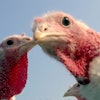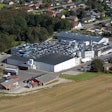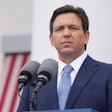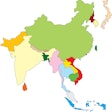The National Pork Producers Council on Aug. 15 repeated its request that a “modernized” North American Free Trade Agreement (NAFTA) maintain the zero-tariff rate on pork traded in North America.
President Trump has made updating the 23-year-old trade deal between the United States, Canada and Mexico a priority since before taking office and even considered withdrawing from the agreement. The initial NAFTA renegotiation talks began on Aug. 16.
NPPC has been one of the leading agricultural voices in support of the agreement, issuing a white paper and twice testifying before congressional committees on the benefits of the pact.
“Canada and Mexico are top markets for our pork, so, obviously, we don’t want any disruptions in our exports to those countries; we need to keep pork trade flowing,” said NPPC President Ken Maschhoff, a pork producer from Carlyle, Ill. “We want to reiterate to the Trump administration that NAFTA has been a boon to the U.S. pork industry and to all of American agriculture.”
Since NAFTA went into effect Jan. 1, 1994, U.S. trade north and south of the borders has more than tripled, growing more rapidly than U.S. trade with the rest of the world. Canada is the No. 2 market for U.S. agricultural products; Mexico is No. 3. In 2016, America’s farmers exported more than $38 billion of products to the two nations, or 28 percent of all U.S. agricultural exports. Those exports generated more than $48 billion in additional economic activity and supported nearly 287,000 U.S. agricultural jobs.
For the U.S. pork industry, Canada is the No. 4 market, and Mexico is No. 2. Last year, the industry shipped almost $799 million of pork to Canada and nearly $1.4 billion to Mexico. Those exports help support more than 16,000 U.S. jobs.
“U.S. pork trade with Canada and Mexico has been very robust, and we need to maintain and even improve that trade,” Maschhoff said. “We will continue to work with the administration to make sure that happens in a modernized NAFTA.”


















